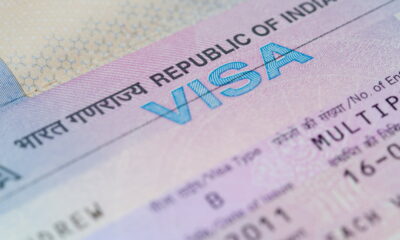

News
New UN Study Detailing Ways For Companies To Create A Digital Economy
UN-based Better Than Cash Alliance have released a new report detailing ten tangible steps governments and companies can take to embrace digitisation of payments, leaving behind a cash-dominant economy.
The new report comes just as McKinsey Global Institute released projections that digital finance could lead to a $3.7 trillion GDP boost by 2025, create 95 million new jobs across all sectors, and save $110 billion annually in leakages in emerging countries.
There is a large amount of evidence supporting the benefits of transitioning from cash to digital payments, but implementation is often difficult for governments to do on their own. This is in part because successfully creating an economy where digital payments are widely available requires a collaborative approach between many players in the public and private sectors.
The Better Than Cash Alliance research studied 25 countries, including India, Nigeria, Tanzania, Ghana, Brazil, and Mexico, among others. What emerged were ten ‘accelerators’ or actions that regularly proved to make a strong impact in advancing the creation of economies where digital payments are widely available.
“The new McKinsey Global Institute study on digital finance for all should inspire emerging countries’ leadership to move quickly on creating economies where digital payments are widely available,” said Dr. Ruth Goodwin-Groen, Managing Director of the Better Than Cash Alliance. “We also released a study today that shows how governments and companies can rapidly shift away from cash. Building a digital economy can take significant work, but as the new data shows, it is completely achievable and will drive inclusive growth, helping people lift themselves out of poverty.”
The new McKinsey Global Institute study on digital finance for all should inspire emerging countries’ leadership to move quickly on creating economies where digital payments are widely available.
This report also highlights the ever increasing importance of transitioning to digital payments. The data compiled in the report provides evidence of the benefits that digital payments bring, including:
* India saves US $2 billion every year by digitizing fuel subsidies also reducing payment leakages.
* In Tanzania, the digitization of port business-to-government payments trimmed US $175 million in annual revenue leakages and has the potential to boost GDP by up to US $1.8 billion.
* Brazil saved over 30 percent in transaction costs in government to people disbursements.
* As of result of installing 20,000 point-of-sale devices, Mexico experienced a 17 percent growth rate in this type of transactions between 2014 and 2015.
The analysis of the evidence has led to identifying 10 actions on how other countries can accelerate their initiatives to save money, raise tax revenue, and increase opportunities for their citizens to lead better lives.
The 10 accelerators are:
1. Promote merchant acceptance infrastructure across micro, small, and medium enterprises to deepen usage among consumers and larger payers alike.
2. Leverage existing networks or platforms to deliver digital payment products and services to extend digital payment services more quickly and in a way that lowers the cost.
3. Establish a shared digital infrastructure for players to reduce barriers to entry and promote innovation, both in public and private institutions.
4. Establish interoperability to reduce barriers that confine digital transaction to a single payment platform to increase adoption and payments acceptance.
5. Develop a unique identification program that both public and private sector players can access to verify identities can drive digital payments and financial inclusion. Consumer protection frameworks are essential to ensure adequate privacy, security, and data control.
6. Digitise routine use cases that individuals frequently use for transactions can increase comfort with digital payments and increase digital transaction volumes.
7. Digitise government payments to advance a digital payments ecosystem by saving transaction costs and increasing civilian access to payments.
8. Digitise government receipts to promote comfort with digital payments among individuals and businesses, and ultimately reduces leakages and boosts revenues. Collaboration with private sector is key.
9. Establish regulation that promotes innovation and responsible practices, by understanding the gaps and barriers of existing regulation, and engaging all stakeholders.
10. Implement policies that incentivize and improve the convenience of digital payments to drive faster and more widespread access and adoption of digital payments.
Understanding these accelerators will help governments develop tailored approaches to best apply this knowledge in their appropriate markets. The report is accompanied with a toolkit to specifically help policymakers and important stakeholders to develop such programs.






























